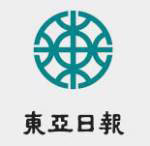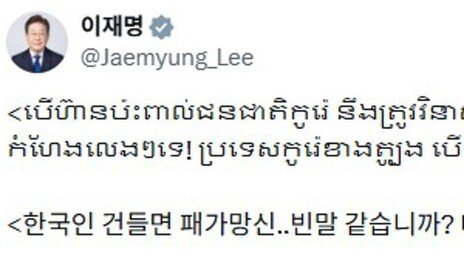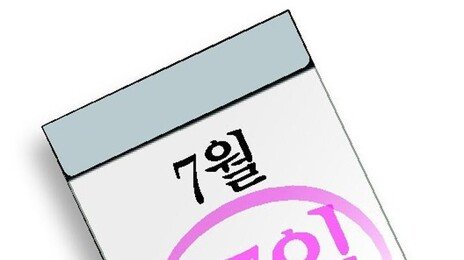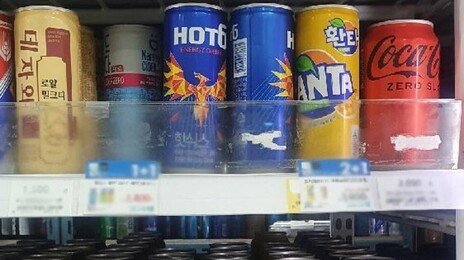공유하기
[G20 SEOUL SUMMIT 2010]G20 Leaders Chew over Issues at Working Dinner
- 동아일보
-
입력 2010년 11월 12일 03시 00분
글자크기 설정
While the G20 Seoul Summit has chosen the inclusive “Shared Growth beyond Crisis” as its slogan, an acrimonious global dispute over governmental roles in national currency values, and what some pundits fear is a looming “currency war,” has seized center stage.
Progress on this issue is likely to be seen as the litmus test of the high-profile meeting.
Questioned about easing imbalances in the global economy at the opening meeting of the B20 business summit taking place on the 11th, prior to the G20 leaders summit, President Lee Myung-bak said, “If one country fights to live, it may be helpful to that country for a while, but the global economy will go back-wards. We need international co-operation.”
Lee added that each country has its own agenda but expects an agreement at an appropriate level. He urged nations to agree upon setting the terms for a current account guideline and a timeline for making detailed plans for imp-lementation.
The G20 leaders themselves exchanged their first views on the currency issues during a welcoming dinner that was simultaneously a “Global Economy and Framework” session. This, the first official summit program for the leaders was held on the 11th at the National Museum of Korea.
Chemistry appeared good as President Lee Myung-bak and First Lady Kim Yoon-ok greeted visiting leaders for a photo opportunity from 6pm.
The guests, who arrived in reverse order of seniority, passed through an official welcome hall on the way to the reception area. Laid out as a “Road of History,” the hall displayed some of the museum’s most valuable treasures, including a Baekje Dynasty incense burner and a Stone Age earthenware vessel. Upon reaching the dining room, the guests got a close view of historical relics placed on their banquet table.
Thirty heads of G20 states, observer nations and international organizations attended the dinner, excluding President Nicolas Sarkozy of France and President Susilo Bambang Yudhoyono of Indonesia who were late in arriving in Korea.
President Lee was flanked by U.S. President Barack Obama to his left and U.K. Prime Minister David Cameron to his right. President Sarkozy, chairman of the next G20 meeting in Paris, was supposed to sit to the left of President Lee, but seating plans were changed at the last minute as, due to domestic circumstances, the French president will arrive on the early morning of the 12th.
President Obama and President Hu Jintao of China, the heads of state most hotly engaged in the currency dispute, were strategically placed on opposite sides of the table.
In his opening declaration Lee hammered home the message of international co-operation and consensus.
“Let’s take one more step forward and come up with a concrete plan and
accord for international cooperation at the Seoul summit,” he said.
He also emphasized that the world should understand that international cooperation is the only means for the global economy to grow continuously, pointing out some are skeptical that it would be hard to achieve cooperation among G20 countries as the global economy is back on track, leaving the recession behind.
But he sounded a cautiously optimistic note, saying, “We can deliver a reassuring message to the world by producing a concrete agreement on the global economy and framework during this two-day summit.”
Over dinner, the heads of state listened to a report on the state of the global economy by Dominique Strauss-Kahn, the managing director of the International Monetary Fund. They also exchanged views on the knotty current account and exchange rates issues which involve conflicting national interests.
As the leaders talked, listened and dined, G20 finance ministers, in a separate room next to the dinner hall, continued to thrash out the issues, in hopes of coming to an agreement that would enable a substantive official communiqu´e. After the dinner. details of the discussions among the leaders and among the finance ministers were passed on to their vice-finance ministers.
An official of the G20 Summit Pre-paration Committee said, “All finance ministers agreed on the currency principles previously discussed at the Gyeongju G20 Finance Ministers and Central Bank Governors Meeting, and are now striving to bring about further progress on that agreement.”
Accordingly, the principles of “market-determined exchange rate systems” and “refraining from competitive currency devaluations,” stated in the G20 Gyeongju Communiqu´e are likely to be re-emphasized in the final statement to be released by the leaders on the afternoon of the 12th.
Meanwhile, the two-day G20 business summit ended on the 11th with a press conference and closing meeting. Through a joint declaration, 120 chief executives of global businesses urged the quick settlement of the Doha Development Agenda, the restraint of protectionist tendencies, and the easing of financial regulations.
The business leaders emphasized that nations should stop government-led economic stimulus packages and give the lead to businesses. The joint declaration also called for regular business summit meetings; “We expect the framework of the Seoul business summit to advance further at [future] G20 summit meetings,” the declaration read.
turtle@donga.com

The Dong-a Daily is the parent company of the Dong-a Media Group
(DAMG), which is composed of 12 affiliates including Sports Dong-a,
Dong-a Science, DUNET, and dongA.com. Now the DAMG is working to become a
comprehensive global media group with the addition of a broadcasting
arm. The Dong-a Daily has partnered with internationally renowned media
companies such as The New York Times, The Asahi Shimbun of Japan and
People’s Daily of China. It also publishes global editions in 90 cities
worldwide. Under its motto, “A better future of the next generation”,
the Dong-a Daily has been concentrating on delivering valuable
information to its readers for the past 90 years.
트렌드뉴스
-
1
‘사우디 방산 전시회’ 향하던 공군기, 엔진 이상에 日 비상착륙
-
2
트럼프 “내가 너무 친절했다…관세 훨씬 더 높일수 있다” 으름장
-
3
“강성보수 장동혁, 지선전 극적 변화 어려워”… 재신임 투표론 나와
-
4
“뱀이다” 강남 지하철 화장실서 화들짝…멸종위기 ‘볼파이톤’
-
5
“폭설 속 96시간” 히말라야서 숨진 주인 지킨 핏불
-
6
세결집 나서는 韓, 6월 무소속 출마 거론
-
7
日 소니마저 삼킨 中 TCL, 이젠 韓 프리미엄 시장 ‘정조준’
-
8
AG 동메달 딴 럭비선수 윤태일, 장기기증으로 4명에 새 삶
-
9
[동아광장/박용]이혜훈 가족의 엇나간 ‘대한민국 사용설명서’
-
10
李 “한국인 건들면 패가망신, 빈말 같나”…캄보디아어로도 경고
-
1
장동혁, 강성 지지층 결집 선택… 오세훈도 나서 “張 물러나라”
-
2
[사설]장동혁, 한동훈 제명… 공멸 아니면 자멸의 길
-
3
“장동혁 재신임 물어야” “모든게 張 책임이냐”…내전 격화
-
4
李 “한국인 건들면 패가망신, 빈말 같나”…캄보디아어로도 경고
-
5
트럼프 “내가 너무 친절했다…관세 훨씬 더 높일수 있다” 으름장
-
6
李, ‘로봇 반대’ 현대차 노조 향해 “거대한 수레 피할 수 없어”
-
7
부동산 정책 “잘못한다” 40%, “잘한다” 26%…李지지율 60%
-
8
세결집 나서는 韓, 6월 무소속 출마 거론
-
9
정청래, 장동혁에 “살이 좀 빠졌네요”…이해찬 빈소서 악수
-
10
지선앞 ‘자폭 제명’… 한동훈 끝내 쳐냈다
트렌드뉴스
-
1
‘사우디 방산 전시회’ 향하던 공군기, 엔진 이상에 日 비상착륙
-
2
트럼프 “내가 너무 친절했다…관세 훨씬 더 높일수 있다” 으름장
-
3
“강성보수 장동혁, 지선전 극적 변화 어려워”… 재신임 투표론 나와
-
4
“뱀이다” 강남 지하철 화장실서 화들짝…멸종위기 ‘볼파이톤’
-
5
“폭설 속 96시간” 히말라야서 숨진 주인 지킨 핏불
-
6
세결집 나서는 韓, 6월 무소속 출마 거론
-
7
日 소니마저 삼킨 中 TCL, 이젠 韓 프리미엄 시장 ‘정조준’
-
8
AG 동메달 딴 럭비선수 윤태일, 장기기증으로 4명에 새 삶
-
9
[동아광장/박용]이혜훈 가족의 엇나간 ‘대한민국 사용설명서’
-
10
李 “한국인 건들면 패가망신, 빈말 같나”…캄보디아어로도 경고
-
1
장동혁, 강성 지지층 결집 선택… 오세훈도 나서 “張 물러나라”
-
2
[사설]장동혁, 한동훈 제명… 공멸 아니면 자멸의 길
-
3
“장동혁 재신임 물어야” “모든게 張 책임이냐”…내전 격화
-
4
李 “한국인 건들면 패가망신, 빈말 같나”…캄보디아어로도 경고
-
5
트럼프 “내가 너무 친절했다…관세 훨씬 더 높일수 있다” 으름장
-
6
李, ‘로봇 반대’ 현대차 노조 향해 “거대한 수레 피할 수 없어”
-
7
부동산 정책 “잘못한다” 40%, “잘한다” 26%…李지지율 60%
-
8
세결집 나서는 韓, 6월 무소속 출마 거론
-
9
정청래, 장동혁에 “살이 좀 빠졌네요”…이해찬 빈소서 악수
-
10
지선앞 ‘자폭 제명’… 한동훈 끝내 쳐냈다
-
- 좋아요
- 0개
-
- 슬퍼요
- 0개
-
- 화나요
- 0개



댓글 0